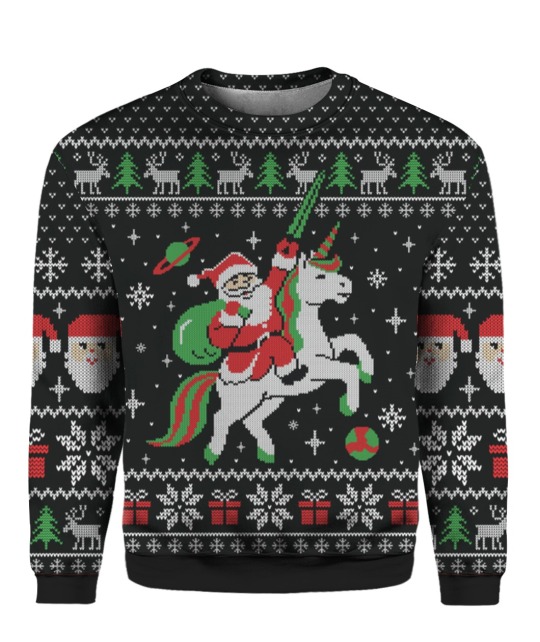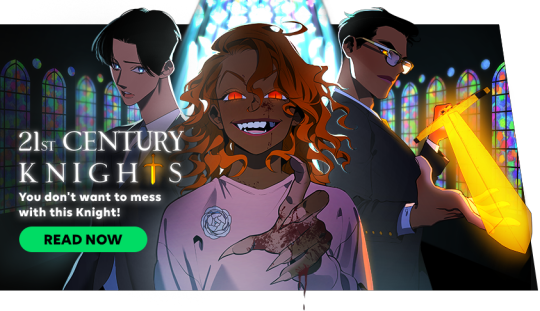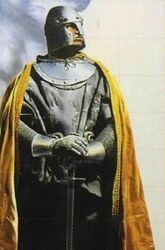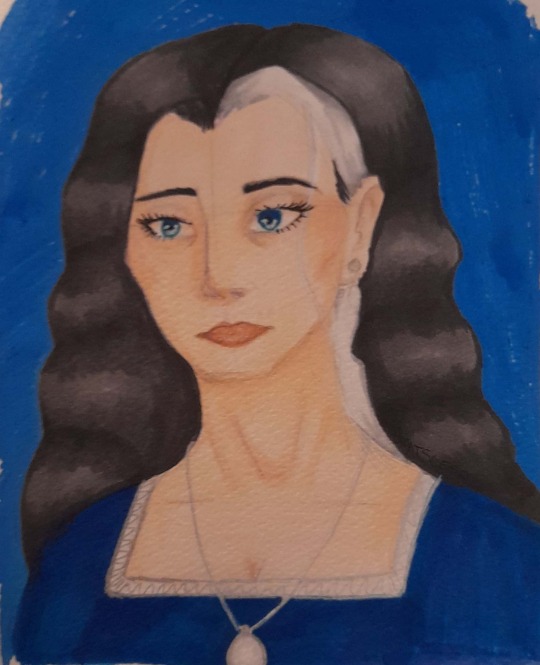#The Malloreon
Explore tagged Tumblr posts
Text
Beldin: You can't fucking hurt me, bitch. I'm protected by the migratory bird act.
52 notes
·
View notes
Text

the voices,,,the voices are telling me to reread the belgariad,,,
it's fine guys, it only took me 12 years to draw a full body reference of a core favorite character from my childhood
(can you guess my rook Hugo is basically based off this guy)
Old drawings of this fuck under the cut



#the belgariad#the belgariad silk#prince kheldar#the malloreon#david eddings#digital art#art#artists on tumblr#book art#fanart
7 notes
·
View notes
Text

Polgara from David and Leigh Eddings' Belgariad/Malloreon Series for @xerohourcheese
created using the screenshot of Lilith from the owl house below as template

#polgara the sorceress#polgara#belgariad/malloreon series#david and leigh eddings#the belgariad#the malloreon#my art#artists on tumblr
24 notes
·
View notes
Text
Everyone being convinced they're gonna die at the end of the Seeress of Kell is both super sad and genuinely amusing in the way it's presented. Like Garion trying to console his wife and convince her that she'll be okay is super sad because they've been looking for their son for nearly 2 years and Ce'Nedra is convinced she won't get to go home with him.
But then the largely unflappable Silk comes over to say his goodbyes and "avoid the rush" because every one of their companions is convinced that it's them who isn't going to make it off Korim. Garion spends his days hearing each of his friends saying their goodbyes which must have been horrible!!! But again that realisatio of the emotions he must have been feeling are put off again when Silk comes up to make sure Garion hasn't drowned himself and advise him against drinking any of the ale below deck.
LIKE I really enjoy those few pages. It's obviously a huge emotional load on all of them, especially Garion, with a prophecy demanding the death of one of the companions but none of them being willing to imagine it being anyone but themselves. But none of them are willing to admit it infront of anyone but Garion. Like that's huge. That's an awful burden. But the way it's written seems to follow every characters mindset in trying to play it off resulting in enough tension that you anticipate what's coming but with a little flippancy that makes it almost something you can find funny.
#sleeptalks#the malloreon#the belgariad#oh man i love this series so much#since theyre my dads books i cant annotate them but im gonna go back and reread them immediately and keep notes
5 notes
·
View notes
Text
—Eriond
be honest. are you guys only hanging out with me because of the prophecy.
53K notes
·
View notes
Text
I have such a love-hate relationship with the Eddings fantasy series. I tried to explain it in a post... But it turns out either into an insanely long dissertation, into a completely unhinged rambling that sounds like pure chaos. But it is a good reflection of how complex and frustrating it is to deal with these series.
So for now I will just say that these series have so many good things for them, and have a key part in the evolution of fantasy literature... And yet have just as many things to be hated for, and so many reasons to be disliked.
I think the most important point is that the Eddings couple was good at two things. On one side, the subversion and twist of fantasy tropes - well, what WAS at the time fantasy stereotypes and cliches - and as one reviewer said, the Eddings would have probably produced better books if they were fantasy parodies or humoristic novels. On the other side, they are excellent at character concept, basic worldbuilding and iconic scenes... but fail when it comes to complexity or plot-building/narrative-flow. Which is why, as I said previously, the Eddings would have been excellent at writing campaign scripts. Just take the Malloreon: it feels SO MUCH like a campaign manual rather than an actual novel series...
Note: By the Eddings series, I refer specifically to The Belgariad, The Elenium and The Malloreon. I do plan on reading the Tamuli at one point, but I am NOT speaking about The Dreamers because I went through more than half of the first book and its shit. Pure shit.
Back to the topic... Yes, the Eddings series are so frustrating as a whole.
They are funny, but very dated. They have cool concepts and ideas, but they have typical 80s-American-prejudices and vaguely pedophile tones (not so much The Belgariad, but the Elenium and Malloreon have... worrying stuff). They subvert Tolkien's work and changed the game in fantasy literature - but then repeat themselves in a drab and dreary way, robbing their own inventivity. They are weirdly positive and weirdly negative at the same time.
And if the books themselves weren't complex in their over-simplicity and problematic in their strange worldview, there is also the big problem of the audience/fandoms literaly not understanding what the books are about. Like people missing out completely that the Elenium is supposed to be "dark fantasy", not "high/heroic fantasy" like the Belgariad ; and there's also something to be said about a very interesting double-standard people have when it comes to the use of "races" in these works - but that will be for another time.
For some, the Eddings series were a "gateway fantasy" to have a short and simple introduction to archetypes, plot beats and the general ambiance of "typical" fantasy. For others, they are a "comfort read" to enjoy something while shutting your brain off. And I agree that this is what these series ultimately are: they were never meant to be high or great literature, and they are very simple and dated, and I personally used them as "waiting reads". Because these are books I can easily get in or out of when waiting for my computer to start, for my train to arrive, for my class to begin. It's a "snack-read". I did feel involved in The Belgariad because everybody agrees that it is the best of all the four series - when the Eddings really struck something good. But by the Elenium and the Malloreon, I literaly was not as invested and I just read it because. To see the characters, and the ideas, and the concepts. Because no matter how poor these series can become, they are always a BIG source of inspiration for fantasy material.
Even The Dreamers, which is pure shit, had one of the most interesting concepts of a fantasy "big villain" thrown to us in the first pages, and this is why I even stepped so far into the book, before giving up by realizing the rest was just... garbage.
#eddings#eddings fantasy#belgariad#malloreon#elenium#fantasy literature#i have so much good things to say#and yet so many things to warn and insult those books upon#i don't think i have ever been split so much since a very long time
3 notes
·
View notes
Text
sitting bolt upright in bed like WHERE is my copy of the Belgariad
#I read it and the Malloreon when I was like eight#and I think if I read it again now that will be interesting
1 note
·
View note
Note
What is your Hogwarts house?
I think that the death of the author only really works when the author is actually dead, and I wouldn’t want to associate myself with that very ugly mess at this point any more than I would want to sit next to Orson Scott Card, the frothing homophobe whose works I loved as an adolescent, or Piers Anthony (whose works I read when I was young enough for him to find me sexually attractive), or David and Leigh Eddings, damn-near-child-murderers whose Belgariad and Malloreon I gobbled up when I was a dozen years old.
JKR’s rampant racism, classism and weapons-grade terfery aside, I was fifteen when the first Potter book came out, and had by that point been reading at an adult level for a decade. I think my favorite fantasy that year was probably Tad Williams’ To Green Angel Tower, an absolute doorstop of a novel--too big to publish at mass market in a single volume--which had been out for four years, but which I only encountered once the school year had started. I mainly read it on my lunch breaks, sitting on the floor in the Art building, surrounded by people playing Magic: The Gathering and arguing about DND 2E; while Wizards had bought the DND IP in the Spring, they wouldn’t release 3rd Edition until 2000. Mostly, the roleplay kids were actually playing Shadowrun. I recall that my younger brother piloted a Glitter Boy, but the rest of it has been lost to memory.
So I don’t have a House. If I’d had a daemon I always figured he’d be a coyote or a fox; I may or may not have quietly recited the Wizard's Oath in the hope that something might happen; I figured I would have been a Wolfrider more than a native of Sorrow's End; if I had been an Aes Sedai, I always figured I'd be a Green; I used to take notes in Cirth, until one day when I was seventeen, sitting in the school auditorium for some lecture I was only half paying attention to, and a boy in the row behind me who I'd had a brutal secret crush on for a year and a half leaned down over my shoulder, tucked my hair behind my ear, and read me my own notes a quiet, satisfied murmur--but while I wanted desperately, in those days before the LotR movies came out, to be an elf, these days I think I'm much more hobbitish.
20 notes
·
View notes
Text
my attempts to avoid thoughts of geralt's hanza continue to fail, as sapkowski talks about them in front of my face.
(from manuscript, on the subject of the hero and the quest):

On this expedition, the Hero (Simple or King) is accompanied by others who are stereotypical-canonical fantasy characters, in other words - clichés:
Wizard-Mentor (the aforementioned MERLIN, Obi-wan Kenobi, Gandalf, Allanon, Belgarath, Sephrenia or Moiraine, who supports the hero with advice and help); Faithful Servant (in the case of the King, literally, in the case of the Simple, rather a childhood friend, Sam Gamgee. He serves the plot to recite wise folk maxims and prove that the simple people are the most morally healthy; or to save the ass of his master/friend where magic and a sharp sword will not help, and common sense and a strong, faithful arm will suffice). Good Knight (charismatic LANCELOT, always loyal and ready to fight, sometimes with some dark secret in his life); Worse Knight (always with some dark secret in his life, ambitious like Boromir, in the clutches of Evil, secretly collaborates with Evil, regrets betrayal, undergoes catharsis, perishes); Trickster - Conniver (see LOKI in "Materia Magiczna"**), cheerful, but can cause trouble, which attracts like a magnet; Damsel in Distress, who is saved from danger on the way and included in the team. Usually a princess in disguise. For several volumes of the cycle she does not like the Hero, in the last she becomes his wife.
* Type A = Percival, a hero who does not have power and is searching it, and Type B = King Arthur, a hero who has lost his power and wants to regain it. in other words, Type A = Reynevan and Type B = Geralt :)
** another chapter of the book, "Materia magica, or the Little Magical Alphabetical Lexicon," it's a glossary of various myth and legend. in loki's entry, he recounts some myths of loki and equivalates him with other figures across various traditions: Odysseus, Pryderi, Bricriu, Mordred, Alyosha Popovich, Coyote, Anansi, Maui). then he lists a few fantasy/spec fic characters he categorizes as trickers: Cugel (Dying Earth), Kickaha (World of Tiers), Coyote (Coyote Blue), Peter Lake (Winter's Tale), Moonglum (Elric of Melniboné), Nifft and Haldar (Nifft the Lean), Random (Chronicles of Amber), Saruman (Lord of the Rings), Shimrod (Lyonesse), Silk (The Belgariad and The Malloreon), Gray Mouser (Fafhrd and the Gray Mouser), Talen (The Elenium).
my thoughts:
pretty obvious assignments here, for the most part.
regis is the Wizard-Mentor, but, as he soon loses his mystique, his intellectual, philosophizing manner becomes mundane and irritating than providing magical provenance. he advises incessantly, answering questions before they're asked, giving guidance when no one asked. he only appears to be omniscient, and the others may think he's so smart because he's hundreds of years older than them, but is really just a guy, a middle aged man with a troubled youth which he learned from. his advice is not magically guided and for this reason is fallable, mortal, human. maybe the cliché is also played with in that he's a vampire, not a wizard, sorcerer, or priest, "‘I see.’ The poet sighed. ‘Is Regis a sorcerer?’ ‘No. No, not a sorcerer.’" ... as vampires are typically evil and regis is decidedly a force of good. (on this topic, @wampirzielarz once compared-contrasted gandalf and regis and it was super interesting :))
dandelion is a combination of the Faithful Servant and the Trickster. he's geralt's best friend, and doesn't fight alongside him with sword but his presence is necessary to our hero for moral support, that all makes the first part an obvious assignment... and... sapkowski lists a wide variety of tricksters of various moral alignments, but amongst them are some heroes and some best friends of heroes (and anti-heroes). and asides from being geralt's closest friend, dandelion is, after all, a rascal, who uses words and good looks to get what he wants from people. "a cynic, a lecher, a womanizer and a liar." (also, because i think szarlej also fits this double-definition as well, i won't hesitate to give them to dandelion, as they serve pretty similar functions alongside their respective heroes).
milva is the Good Knight, "always loyal and ready to fight" describes her perfectly, and her 'dark secret' was her pregnancy and plans for abortion. (though, the attribution of lancelot... well, maybe this is why some keen eyes saw a potential in yenva). anyhow, the playfulness with the cliché comes from the fact that she's a woman, which is supposed to be surprising that the hero's strongest ally is a woman. i think the "charismatic" attribute is also supposed to be played with here, as milva is simple and not too well-spoken, only so in her cursing. in other words, she's a peasant woman, and not a born-and-bred nobleman. also, for her gender, she is a play on another trope sapkowski mentions a couple of pages later, but i can't go into it now because it's too funny.
cahir is the Worse Knight, though perhaps in reverse, for all of his associations with Evil was in the past and shed like sports colors when he changed teams. he has no betrayal, "I will never betray you, witcher," all of his ‘betrayal’ was before he was even allied with the hero. but of course, for these sins, he "undergoes catharsis, perishes".
the Damsel in Distress is evidentially angouleme, being "saved from danger on the way and included in the team." the rebuking of the cliché, of course, is that geralt is "genuinely angry, genuinely confused, genuinely embarrassed" when she offers her "gratitude" to him. also, that she is no princess in disguise, just an ordinary girl, though she is confused for the princess they're after (who also happens to be another play on the damsel in distress cliché). and again, like milva, i think angouleme is related to another specifically female character cliché sapkowski calls out; but i'll save it for another post.
#btw this is also why i feel laurence fishburne was incredibly typecast as regis#although i don't want to discuss n*tflix i just wanted to mention that yes that is regis' character trope. morpheus morbius#the interesting part about regis (and all of them. every witcher character ever) is that he breaks his trope and#creates unexpected situations and moments which are very enjoyable#the witcher books#f: a hansa's a hansa#book: manuscript discovered in a dragon's cave#i'm really trying to save my commentary for videos but i just cant not share this i love the hanza too much!!#asides from that it is indeed a really helpful guide to the genre#sapkowski going on about this makes me feel a bit like when a dad shows you wallet pictures of his kids#like 'this one's ashley - she's 8 and on the soccer team'#'geralt is a type b hero - king arthur category - and he's also a play on the 'superman' american tradition of heroes'#anyways [looks up moonglum] [third google result: DOES ELRIC AND MOONGLUM ARE GAY?] 'yep the definition fits dandelion'
24 notes
·
View notes
Text
Belgarath: If Beldin says a joke and it's funny I wait until I get home to laugh.
34 notes
·
View notes
Text
Time to continue my series of posts about fatness in fantasy! Thought I was done? Far from it!
Another example of how fatness randomly creeps in into the fantasy genre is the Eddings books. It's another example of a set of stories with recurring elements that we could pick apart.
For those of you who don't know, there was this series of novels in the 80s called "The Belgariad". This series was one of the best-sellers of 80s fantasy, and in many way it gave a new push to the "Tolkien mania" at the time, because the entire point of this book series was to take back all the Lord of the Rings archetype, beats and plot-points, but recreate it into something new and fresh, while playing around the cliches and expectations of the "tolkien genre" (unlike for example the Sword of Shannara book which was made to be much more of a pastiche and imitation). Today most people know the Belgariad as a "gateway fantasy", as in a book series that introduced them as children or teenagers to the high fantasy/epic fantasy genre.
There isn't really anything fatness-related here except of a few elements - for example there is a secondary character, King Rhodar, the uncle of one of the co-protagonists, who is explicitely described as very fat and his largness is very much insisted upon, to the point that by the sequel-series he is said to have died due to the consequences of his obesity.
There's a sequel series to the Belgariad, calle the "Malloreon", which is... if you ask me it is a very bad series. The Belgariad can be read easily, and it works on its own, and you know, it's a classic that influenced the genre. But the Malloreon is... plain bad. Which is too bad because it does quite important stuff (like fighting the inherent racism of the first series...), but it is wrapped in just bad writing, atrocious plots and the flanderization of characters. I will only mention this series because in its beginning, one of the characters of the Belgariad returns (I think it's Cho-Hag? I don't recall the name, it is one of the "rider people" obsessed with horses) and the other characters point out how he literaly got a dad bod (as in, he gained weight after becoming a dad).
The Eddings couple, the authors of the Belgariad/Malloreon, wrote much later a stand-alone fantasy novel, "The Redemption of Althalus", which I did not read, but which contains characters such as a warlord so renowned for being fat that is name is literaly "Big-belly" (or Fat-belly), and a co-protagonist who is explicitely said to be a young man with an enormous appetite and rarely satiated, until the end of the book when he finally has a normal hunger. This plot device has been use before by the Eddings in another book series of fantasy, the Tamuli series, where one of the co-protagonist, due to being a teenager fully growing into a young man with an intense growth spurt, gains a large appetite (though no weight gain involved).
But the real series I want to evoke is "The Elenium" (to which the Tamuli is a sequel). After writing the Belgariad/Malloreon, the Eddings created a different fantasy series called The Elenium. It takes back elements, plots and types from The Belgariad, but whereas the Belgariad was meant for a more epic fantasy, the Elenium is more dark fantasy. It is not as good as the Belgariad, though much better than the Malloreon - the inherent flaws and problems with the Eddings are very much appearing here (while they could pass well-hidden in the Belgariad), and... anyway you'll see for yourselves if you ever go read it. BUT! There is one very important character if you want fatness in fantasy, and he is the epitome of "fatness as evil" in this kind of genre.
It is one of the main antagonist, the powerful sorcerer-king Otha. He only appears in person in the third book of the series (it is a trilogy), after organizing conspirations, sending monsters and causing wars all throughout the two previous books. And what is supposed to be one of the "twist reveals" of this series is Otha's appearance. Because the Eddings basically wrote Jabba the Hutt before Star Wars did. The backstory of Otha is revealed that he was a simple, poor, not that bright shepherd young man in ancient days, until he found the idol of an evil god who offered him powers and riches. Being a simple-minded, regular man with quite a mean streak to him, he simply became a decadent and hedonistic tyrant, helped with the magic and immortality offered by the evil god he served. But the result of living for centuries while eating endlessly (he always was a glutton) and never leaving his palace was a terrifying body modification, as he became so fat and enormous his limbs literaly became atrophied, and he also ended up losing his hair and becoming all pale and sweaty, leading to him looking like a sort of grotesque, gigantic, bloated worm of a man. So it comes as a shock to the heroes when they see what the dreaded evil overlord they have been fearing all this time looks like - the mighty warlock of evil is just a lazy oaf and a fat fool so big he can't even walk on his own, and has to be carried around by a dozen of very muscular slaves.
If you are an enjoyer of this type of character, I know that a similar idea was used by Glenn Cook in one of his short-stories companions to his famous dark fantasy classic "The Black Company". I do not remember which short story it was, but it talked of a mighty and evil god-like sorcerer called "The Master", who ended up bound and trapped into some sort of underground cave millenia ago. Unable to leave his lair or to do anything, he simply spent all of his time eating until he became monstrously obese, and - since this is a dark fantasy - he has servants of his regularly bring him copious amount of food... Or human beings if he is feeling it, because it's still meat in the end.
7 notes
·
View notes
Text
Fantasy books as an upper body garments
Lord of the Rings:

The Chronicles of Narnia:

And the The Belgariad and The Malloreon books

13 notes
·
View notes
Text
Round 1, Side A - Theresa (21st Century Knights) vs. Sir Mandorallen (The Belgariad and The Malloreon by David Eddings)


Propaganda:
Theresa (21st Century Knights)
No propaganda submitted.
Sir Mandorallen (The Belgariad and The Malloreon by David Eddings)
While generally a pretty textbook example of a fantasy knight, Sir Mandorallen's most exemplary quality is his commitment to the bit. He almost seems to understand on some level that he's fictional, but didn't get the memo that the work of fiction he's from isn't actually a medieval chivalric romance. The result is a character who talks entirely in Shakespearean English in conversations where everyone else is talking normally, and who gets legitimately upset about getting to marry his love interest because it means he can't angst about being separated from her anymore. Other paladins might be better known, or more central to their respective stories, but nobody understands the assignment quite like Mandorallen.
#Paladin Tourney#Paladin Tourney Round 1#paladin#dnd paladin#d&d paladin#paladins#knights#tumblr polls#tumblr tournament#tumblr tourney#poll bracket#tournament#tumblr bracket#poll tournament#character polls#character tournament#character bracket#theresa#21st century knights#sir mandorallen#the belgariad
14 notes
·
View notes
Text

Hehehehe hello belgariad fandom
2 notes
·
View notes
Link
Chapters: 5/5 Fandom: Belgariad/Malloreon Series - David & Leigh Eddings Rating: Explicit Warnings: No Archive Warnings Apply Relationships: Silk/Barak Characters: Silk (Belgariad/Malloreon), Barak (Belgariad/Malloreon) Additional Tags: PWP, Blow Jobs, Anal Sex, Anal Fingering, Outdoor Sex, Seduction, First Time, Pawn of Prophecy time period, Canon Compliant, Bathtubs, Heinous misinformation about sailors, Mentions of Attempted Suicide, Non-Graphic Violence, Infidelity Summary:
Silk may feel bad about being in love with another man’s wife but he has no compunctions seducing somebody’s husband.
Or wherein Silks plan to annoy Barak by hitting on him backfires slightly.
Or, how to make the miles go faster on a cart through Sendaria
13 notes
·
View notes
Text
Rules: make a poll with five of your all time favorite characters and then tag five people to do the same. See which character is everyone's favorite.
Tagging @autumnleafauthor @sunsetpanic @brokenblade-legendarycreature @topshelf2112-blog @lovemelizards-main
And anyone else who wants to do this.
2 notes
·
View notes